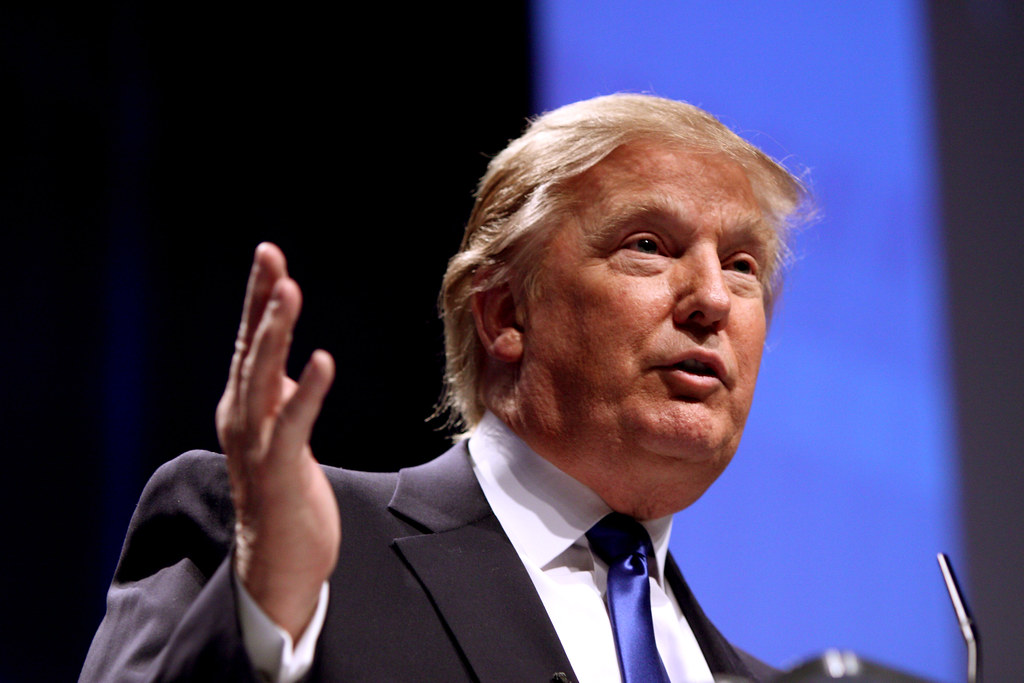Donald Trump is the furthest thing from a threat to democracy where abortion is concerned — and for activists on both sides, that’s alarming.
Rights to life or to reproductive choice can’t be true in some places but not others.
Yet Trump wants to leave the rights at stake in abortion to local determination.
He’s putting democracy in the states above what both sides see as a higher principle.
Many pro-lifers feel betrayed — but Trump’s position is in fact their movement’s lifeline.
His Supreme Court appointments created the majority that overturned Roe v. Wade, delivering the pro-life movement the greatest victory it’s ever won.
Thanks to the Dobbs decision, there’s no longer a federal right to abortion.
But success changed the issue’s politics profoundly.
Before Dobbs, pro-lifers made common cause with legal conservatives who believed in strict construction of the Constitution, which makes no mention of abortion.
The anti-Roe coalition really had two components — pro-lifers and strict constructionists who were not necessarily anti-abortion but believed Roe was bad law.
Although the Supreme Court decided the issue, getting the right mix of justices on the court was a political project.
It required winning elections, and the anti-Roe coalition won enough to achieve its goal.
Only now the anti-Roe coalition is split, and pro-lifers by themselves are losing.
They’ve been defeated in every state referendum so far, and Republicans fear a backlash in support of abortion rights will hurt GOP candidates, too — possibly costing the party the presidential contest.
Democrats are certainly pleased to have abortion initiatives on the ballot in Florida and Arizona this November.
But even though state battles are hard enough, principled pro-lifers think abortion has to be a national issue:
Human life can’t begin at different times in different places just because a different party controls the legislature or voters pass a referendum.
If life begins at conception, that must be as true in New York or California as in Texas.
Yet even many conservatives blanch at what pro-life consistency means for in vitro fertilization and some forms of birth control.
IVF creates more human embryos than can be implanted, with the remainder destroyed or forever frozen.
Consistently following the premise that life begins at conception would mean outlawing IVF, as well as pharmaceutical contraception that might prevent a fertilized egg from implanting in a woman’s womb.
As a practical matter, abortion opponents concede that some restrictions are better than none, which is why in most states the debate is over limiting abortion after a certain number of weeks’ gestation, not a total ban, and few Republicans contemplate curbing IVF.
Pro-life leaders are troubled by Trump’s “leave it to the states” position, however.
The political logic is clear; pro-lifers get the strong restrictions they want in some places rather than nowhere, which was the case before Dobbs.
And while Democrats hope abortion will still hurt Republicans in November, Trump is trying to rebuild the winning anti-Roe coalition.
Yet to say abortion is something for states to decide, in principle, forfeits the claim that there’s any objective truth in the debate above local feelings.
Abortion-rights advocates also believe their position must be enshrined nationwide — and the evidence of every election since Dobbs suggests they would only win bigger in a national fight.
Pro-lifers stand to lose everything gained in overturning Roe if the struggle gets re-nationalized.
Proposing modest national restrictions, after 15 or 16 weeks, doesn’t hold much hope of changing the math when voters even in red states like Kansas and Ohio have approved more liberal policies by referendum.
If Republicans won the White House and both chambers of Congress, they could pass such a law — only to see it repealed as soon as Democrats retake power.
Democrats wouldn’t even have to repeal it; they can invert the effect of a law that restricts abortion simply by adding open-ended exceptions.
In theory, Roe itself permitted strong restrictions after the second trimester, but exceptions for the health of the mother — including mental well-being — were so broadly construed as to negate any strict limit.
Pro-lifers upset with Trump mistake their situation.
They’re not missing an opportunity to declare a universal right to life; they’re rather in a pitched battle to stop the other side from reestablishing a universal right to abortion.
It’s a battle they’ll lose without allies like Trump.
Right-to-life leaders want a philosopher-statesman to express their position in the language of absolute principle.
But historically, before there could be a Thomas Jefferson or Abraham Lincoln, the American people had to recognize for themselves what their rights were, through intense debate in the colonies and states.
It’s too soon for a Jefferson or Lincoln; for now there’s only Trump or something worse.
Daniel McCarthy is the editor of Modern Age: A Conservative Review. To read more by Daniel McCarthy, visit www.creators.com
COPYRIGHT 2024 CREATORS.COM
For more great content from Rights, Justice & Culture News.
For more from The Heartland Institute.
